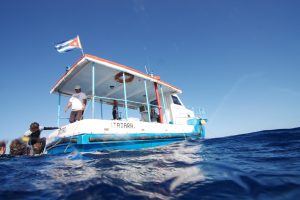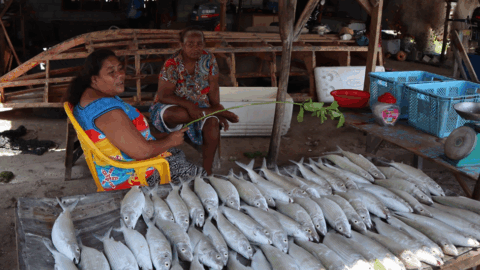Cuba and the U.S. can only solve shared conservation challenges by working together
 By: Katherine Angier and Dan Whittle
By: Katherine Angier and Dan Whittle
Over the past few years, U.S. policy toward Cuba has been a series of unilateral actions that have had severe impacts on the Cuban economy and undermined its emergent private sector, without any apparent benefits to the U.S.
Diverse groups are pushing back against these restrictions, from the U.S. Chamber of Commerce to public interest groups, from churches to a growing bipartisan coalition in Congress. They recognize that engagement is still our best chance of resolving decades-long disputes and tackling shared challenges.
The administration’s approach has substantially decreased economic and cultural exchange and created a chilling effect in other areas. Nonetheless, not all doors to travel, dialogue or cooperation have closed, and it’s essential we work to keep them open. In particular, the ongoing collaboration between Cuban and U.S. scientists has been fruitful, with tangible benefits to the people of both countries.
At Environmental Defense Fund (EDF), we have experienced the benefits of collaborating with Cuban scientists and conservationists first-hand. Our work in Cuba began nearly 20 years ago, before the reestablishment of U.S.-Cuba relations in late 2014. It was through joint scientific research and dialogue that we built a foundation of trust, working together to understand and address environmental challenges facing both countries, from overfishing to the loss of coral reefs.
The 2010 BP oil spill disaster was a wake-up call to U.S. officials, alerting them to the need for coordination with Cuban counterparts on preparing and responding to catastrophic oil spills. The possibility of a future oil spill in Cuban waters posed a risk to coastal communities and environments in Florida and other East Coast states. Because of established relationships with Cuban scientists and officials, U.S.-based conservation, academic and industry leaders were well-positioned at that time to support and facilitate talks that ultimately led to a bilateral agreement on oil spill prevention and response.
Scientific exchange can help avert crises on land as well as at sea. For example, agricultural researchers at the University of Florida are working with their Cuban counterparts to prevent the spread of invasive pests and fight the citrus greening disease harming crops in both countries.
This progress has been possible due to travel permitted for professional research. The knowledge gained from working together can then inform sound decision-making when the opportunity for cooperation arises.
There is much for us to learn from each other, not only in the realm of conservation, but through medical, biotechnical and agricultural research as well. Take Cuba’s leadership in agroecology, an innovative set of agricultural practices that views crop production as occurring within a larger ecosystem. These techniques seek to minimize downstream impacts on soils, water and biodiversity and the need for external inputs like fertilizer and heavy machinery. U.S. and Cuban agricultural scientists have been working together on ways to increase crop yields while maintaining the sustainability, biodiversity and resilience benefits that agroecology provides.
Simply put, when Cuban and U.S. scientists work together, good things happen: new discoveries, better treatments and protection against common threats. That’s why EDF has partnered with Cuban and international organizations to promote scientific exchange and bring together diverse stakeholders from Cuba and the global community, with an emphasis on renewable energy, transportation and agriculture as key sectors requiring strategies for sustainable growth.
In early July, we convened scientists from Cuba and the U.S. to discuss agricultural sustainability and coastal resilience as part of a larger environmental conference in Havana. During one panel, Cuban researchers from the Ministry of Agriculture shared the results of farm management practices designed to work with, rather than against, nature. Another panel presented research from the University of Vermont using techniques ranging from isotope detection to satellite imagery analysis to measure coastal storm damage and erosion in Cuba. Each panel was followed by active audience discussion, demonstrating significant enthusiasm and interest surrounding these topics.
The United States and Cuba, whatever our political differences, are neighbors with much to learn from each other, and many parallels to draw between the health of our seas, coasts and farms. That is why, despite a political atmosphere that makes cooperation challenging, we continue to support cultural and scientific exchange.













2 Comments
Excellent !.. keep up the good work .. God Bless and all the best . Jorge Ignacio Fernandez
That is why we all need to contribute to the EDF.